In 2025, the world is witnessing dramatic shifts in the international order due to changes in the foreign policies of the United States and China.
First, U.S. President Donald Trump’s “America First” policy in his first term was essentially American isolationism—signaling that the U.S. would no longer involve itself in global issues.
However, in his second term, “America First” has transformed into a plan to restructure the world around U.S. interests under the slogan of “Make America
Great Again” (MAGA).
President Trump declared, “Not a single day under my administration will be spent letting other countries take advantage of us.
We will reclaim our sovereignty and restore our security.” He also pledged to reassess the trade system, increase tariffs on foreign goods, and adopt a policy of reciprocal tariffs.
This is effectively a declaration of economic warfare and tariffs against the entire world.
Although globalization seemed to come to an end after the COVID-19 pandemic, the world still operates under a liberal market economy.
Trump's trade war is likely to cause inflation globally, affecting not only poorer nations but also the middle and working classes within the U.S, worsening their economic struggles.
If the global supply chain of raw materials to the U.S. is cut off, American industries, too, will inevitably suffer.
Moreover, President Trump announced at the outset of his term that he would pursue “peace through strength.”
He said, “We will build the most powerful military the world has ever seen.
We will measure our success not only by the battles we win, but also by the wars we end—and perhaps most importantly, the wars we do not start.”
He emphasized that his proudest legacy would be as a “peace maker” and “unifier,” declaring a new “Pax America”—peace through American strength.
In practice, Trump has been trying to broker a ceasefire between Israel and Palestine under this doctrine, and his administration’s direct strike on Iranian nuclear facilities played a role in bringing about a ceasefire between Israel and Iran.
He has also pushed for a ceasefire in the Russia-Ukraine war.
Based on this, international political experts expect that peace negotiations around issues such as China-Taiwan and North-South Korea will also be approached with a deal-making lens.
Trump has also announced withdrawal from the Paris Climate Accord and the termination of the Green New Deal—a pro-environmental industrial policy of the Biden administration that included incentives for electric vehicles.
He declared a “national energy emergency” and plans to expand oil and gas drilling.
In Europe, the gas supply cut-off from Russia due to the war has led to extremely cold winters and severe energy shortages across industries and daily life. Germany, once focused on green energy, is now planning to resume construction of nuclear and thermal power plants.
Climate and environmental experts warn that starting in 2025, the global climate crisis will worsen due to increasing energy consumption driven by the AI technology race.
Second, Chinese President Xi Jinping’s 2025 New Year’s address introduced the “Responsible Major Power” doctrine.
He declared that China will take on an active role in transforming global governance amid the current chaos and complexity in the world, and deepen unity and cooperation with the Global South—nations in the poorer southern regions of the world. The international community views this as China’s new strategy for global hegemony.
At the 2024 symposium titled “The Global Situation and Chinese Diplomacy,” Foreign Minister Wang Yi stated that the year’s theme would be “Great Global Transformation and China’s New Role.”
As the title suggests, China appears to be preparing to confront the uncertainties and challenges that may arise with the re-election of Trump, while also seizing the opportunity to expand its influence in the leadership vacuum.
China is now presenting five values—“peace, unity, openness, justice, and inclusiveness”—to frame its new role in the international community.
This reflects China’s growing self-perception as a global leader in identity, status, and capability.
Furthermore, China has declared that it will no longer distinguish between diplomatic targets and regions, and will pursue comprehensive global diplomacy.
China has also identified four critical hotspots where it hopes to play a constructive role through its “peace capacity”: the Russia-Ukraine war, the Israel-Palestine conflict, the Korean Peninsula, and the Myanmar crisis.
Due to these changes in U.S. and Chinese foreign policy, the competition between the two nations in areas such as trade, technology, and military security is intensifying.
Conflicts are escalating in many regions of the world, and both the poor in developing nations and the underprivileged in powerful countries, including Europe, are suffering greatly.
Ultimately, the competition for dominance among powerful nations—like the U.S., China, and Russia—under the banner of “peace” results in policies that are anti-human, anti-planetary, and anti-global, sacrificing not only weaker nations but also their own citizens.
Thus, the pursuit of peace for human survival and happiness must go beyond specific ideologies or national interests.
It must be recognized and pursued as a global, collective human effort for coexistence and mutual prosperity.
With this awareness, the 2025 Kim Dae-jung Peace Forum has adopted the theme: “A Vision of Coexistent Peace for the World and the Korean Peninsula.”
Prominent international and domestic scholars—including Professor James Robinson, winner of the 2024 Nobel Prize in Economics for his research on Korea’s economic development—will gather to share insights on “coexistent peace.”
A special feature of this year’s forum will be a network roundtable of experts working directly in conflict zones around the world to build peaceful coexistence.
Additionally, Korean international development cooperation activists will lead a Youth Peace Roundtable Program under the theme “Coexistent Peace: Connecting the World and the Korean Peninsula.”
President Kim Dae-jung dedicated his life to reconciliation and cooperation through his “Sunshine Policy,” a philosophy of peace based on coexistence.
He devoted himself not only to peace on the Korean Peninsula but also to peace in East Asia and the world.
In recognition of his philosophy and lifelong commitment to peace, the Norwegian Nobel Committee awarded him the Nobel Peace Prize in 2000.
Building on his enduring legacy, we hope you to join us at the 2025 Kim Dae-jung Peace Forum
– a forum to gather wisdom and foster meaningful encounters in the ongoing pursuit of coexistent peace.
Co-Chairs of the Organizing Committee for the 2025 Kim Dae-jung Peace Forum






